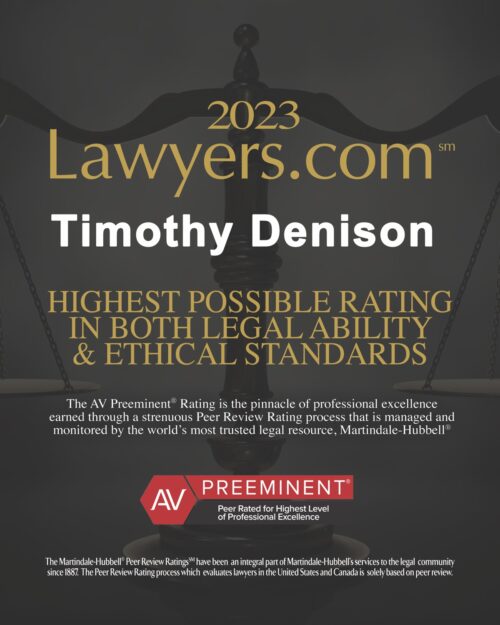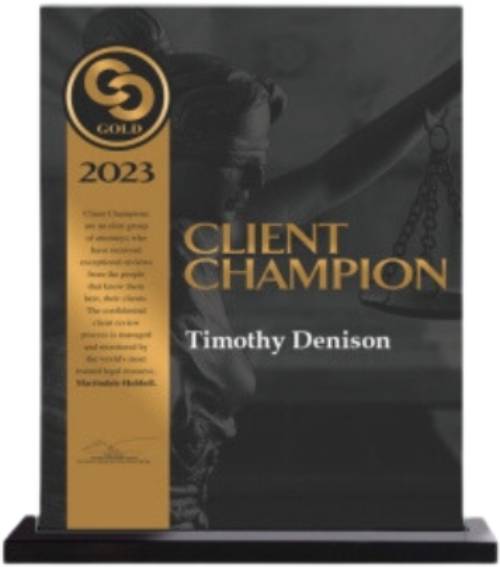File for an Expungement to Clear Your Charges
Episode 5: Louisville criminal defense attorney Tim Denison discusses expungements, which are used to legally remove criminal charges from your record. It formally erases them. You are also permitted, by law, to say you were never charged. An expungement is an interesting and valuable tool, but not all charges can be expunged. Let’s listen to Tim explain the details, in this episode.

What is an expungement?
It’s an erasing or eradication as a charge that’s been brought against you. It can be for a traffic ticket to a felony. People assume that if a case gets dismissed or if the defendant is found not guilty, the charges are automatically removed from your record. That’s very incorrect. The evidence of the charge(s) and the case remain until they are formally removed through the expungement process.
The charges on your criminal record never simply go away. You need an expungement. Without it, those charges may show up in a background check for a job interview or promotion, participating in school activities such as coaching, teaching and other situations.
How Quickly Can a Misdemeanor be Expunged?
Misdemeanors or traffic charges that were either diverted or dismissed are eligible to be expunged 60 days after the order of dismissal. If there was a conviction for the misdemeanor, you have to wait 5 years from the date of the sentencing or 7 years, if it was probated.
Why Get a Traffic Charge Dismissed?
If you want to apply for a commercial driver’s license (CDL), deliver job or even to be an Uber or Lyft driver, having certain traffic charges on your record may prevent you from being considered for the job.
Can a DUI be expunged?
Kentucky DUI charges have a 10-year look-back period. This means you have to go 10 years without another misdemeanor charge. The legislature has made expungements for drunk driving
Can a sex crime be expunged?
If you’re convicted of a sexual offense, whether misdemeanor or felony, is not eligible to be expunged. However, if the charge was dismissed, it’s like any other charge, it is eligible to be expunged.
Are Felony Charges eligible to be expunged?
If the felony charge has been dismissed, it can be expunged 60 days after the date it was dismissed.
Many Class D Felonies are Eligible to be Expunged
These are lower-level felonies that generally come with a sentence of 1-5 years in jail, but are eligible to eventually be expunged. Class C felony charges generally carry a sentence of 5-10 years, which means they will not be eligible for an expungement, unless your criminal defense attorney can get the charge amended down to a lesser charge.
Even after someone with a felony charge has been convicted of a Class C, it still may be possible to eventually convince the prosecutor to reopen the case and get it reduced. This is one way to get the charge “amended down” so that it would now be eligible. The prosecutor has discretion to reopen the case. It’s not done often, but it’s a possibility.
What is the Process for Getting an Expungement?
Generally, if there are no open charges, you attorney can access your record and evaluate which (if any) of your charges are currently eligible to be expunged. Next, a Kentucky State Police criminal record background is ordered. This can take a couple of weeks to several months to receive from the KSP. The client may not be required to appear in court, unless an item on the record is contested. A petition and order is then prepared for each, eligible charge to be expunged. The package can then be submitted to the court. Fees and costs will need to be paid. The clerk will assign a date for the hearing. If everything is in order, much of the process will be completed before the individual’s hearing date. If there are issues, your attorney, the prosecutor and the judge will address the particular questions.
Do I Have to Tell People I Was Charged and/or Convicted?
Once a criminal charge has been expunged, it’s as if it never happened. Legally, you can say you have never been charged. This is extremely valuable if you are applying for a job or promotion, a coaching position, teaching position, etc.
Tim’s office phone number is (502) 589-6916. You can learn more via TimDenisonLaw.com. Tim’s principal office is located at: 235 South 5th St., Third Floor, Louisville, KY 40202. The information from this podcast is for informational purposes only and does not establish an attorney-client relationship. Co-host Jim Ray is a non-attorney spokesperson. This is an attorney advertisement.















